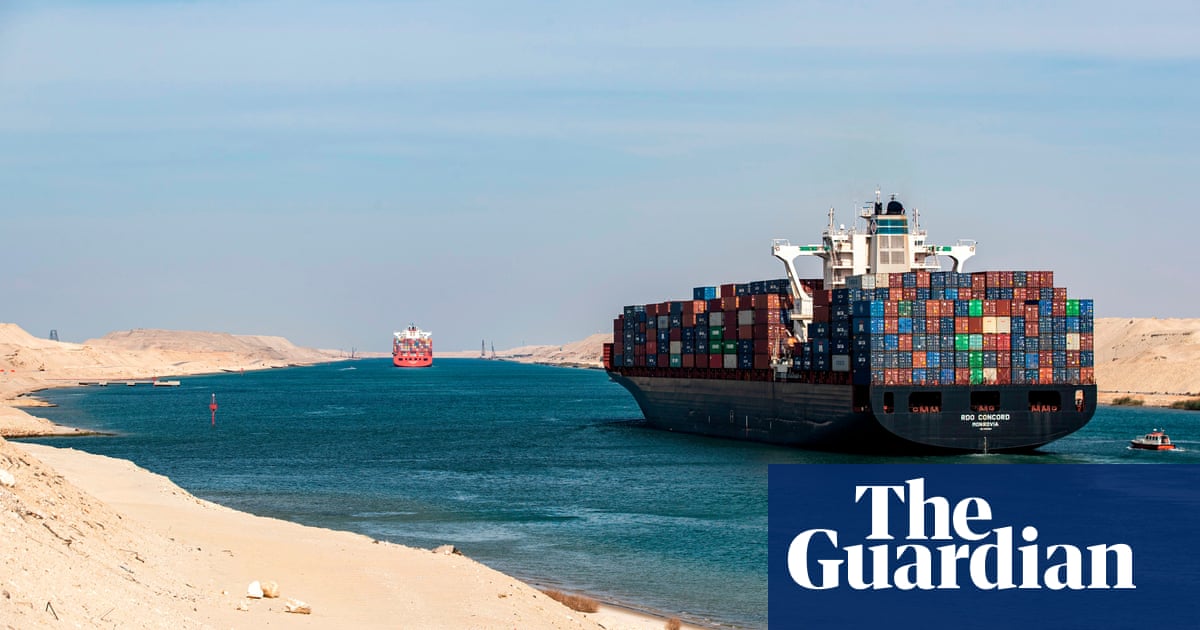Britain’s factories have been hit by disruption caused by Houthi rebel attacks in the Red Sea that led to shipping delays and contributed to rising costs, as the boss of Adidas warned about “exploding” global freight rates.
UK manufacturers have experienced growing supply chain difficulties, as the Red Sea crisis led to the rerouting of deliveries of raw materials, components and other goods away from the Suez Canal, a survey has shown.
The UK manufacturing sector remained in decline at the start of 2024, when output and new orders fell further, leading to more job losses and cuts in purchasing and stocks, according to the monthly survey from S&P Global.
Its purchasing managers’ index was at 47.0 in January, up from 46.2 in December but below an earlier flash estimate of 47.3. Any reading below 50 indicates contraction; any reading above points to expansion.
The Yemen-based Houthi rebels, who are aligned with Iran, have said they attacked ships in response to Israel’s bombardment of Gaza. Israel is retaliating against an attack on 7 October by Hamas, which controls Gaza. The US and UK governments have launched airstrikes against the Houthi rebels.
Some manufacturers in the survey said 12 to 18 days could be added to some expected deliveries, disrupting their production schedules and raising inflationary pressures at a time when companies were struggling with weak demand at home and overseas.
Bjørn Gulden, the chief executive of Adidas, Europe’s largest sportswear manufacturer Adidas, said shipping disruptions would affect profit margins. He said “exploding” freight rates were driving up costs and shipping delays were causing some delivery problems.
Gulden said: “The spot rates are exploding again, so if you don’t have a long-term contract or you ship more than your contract there is an increased cost because of that.
“There is a delay currently of about three weeks which of course causes some delivery issues, especially to the European market.”
The world’s top shipping companies, including Maersk and Hapag-Lloyd, have diverted ships from the Suez Canal and rerouted them around the southern tip of Africa, adding thousands of miles to journeys and delaying the arrival in Europe of manufacturing components and goods such as clothes and shoes made in Asia.
Rob Dobson, the director at S&P Global Market Intelligence, said: “Cost and stock management initiatives are being complicated by the Red Sea crisis. Diverting purchased inputs, especially those sourced from the Asia-Pacific region, around the Cape of Good Hope is raising prices and extending supplier lead times.”
after newsletter promotion
The Suez canal normally handles about 12% of global trade, and about half of freight shipped through the canal is made up of containerised goods. Oil shipments also travel through this route, from the Persian Gulf to Europe and North America, and the continued Houthi rebel attacks on container ships have driven crude oil prices higher.
In the US, the Institute for Supply Management’s latest manufacturing survey, also released on Thursday, showed supplier delivery times rebounded to their highest level in more than a year, while the prices paid index hit a nine-month high.
However, the overall manufacturing index bounced back to 49.1 in January from 47.1 in December, suggesting the downturn in the sector wasreceding.







